Vegetable gardens can be affected by a wide variety of common pests and small animals, which can cause pest damage to leaves and shoots, parasitize plants, or spread diseases.
Moreover, many popular types of pests can also have other negative effects. Some species, such as spiders and snakes, have the potential to be harmful to humans, while others may carry diseases or contanimate food.
Proper identification of garden pests is crucial for effective management, as different species require different methods of pest control.
There are multiple options for organic pest control, including the use of minerals, chemicals, gardening techniques, and biological agents to manage harmful insect populations.
Keep in mind that when we talk about chemicals, it’s not necessarily something that will harm the environment.
Some chemicals are compounds that can be used in organic agriculture as they only impact pests and don’t have any effect on plants or wildlife.
On the other hand, many chemical pesticides that are commonly, but incorrectly, called chemicals, are generalist insecticides that are very harmful to the environment.
These products pollute soil and water, kill beneficial insects, and ruin the balance of the entire ecosystem.
They can also cause the emergence of resistant strains in many insects, which will then be immune to their effects.
These kinds of products should always be a last resort as in they won’t benefit either you or the environment in the long run.
It’s still best to use organic options to eliminate the worst pest populations as they are the safest yet effective methods.
Here are a few popular types of organic products and methods that you can consider trying:
1. Spinosad

Spinosad is a biological agent that is sold in liquid or dust formats and can be sprayed directly on infected plants.
- Check out this popular Spinosad solution: Monterey LG6135 Garden Insect Spray with Spinosad Concentrate
The insecticide is composed of two toxic compounds generated by the metabolism of Saccharopolyspora spinosa, a soil-dwelling bacterium.
This product has been proven effective in managing various types of pests, including bagworms, borers, beetles, spider mites, tent caterpillars, and loopers.
Spinosad doesn’t affect beneficial insects or other wildlife as it dries on the plants and kills the insects that eat it.
To minimize the risks, it’s best to apply it in the evenings, when beneficial pollinators aren’t active.
2. Pyrethrin
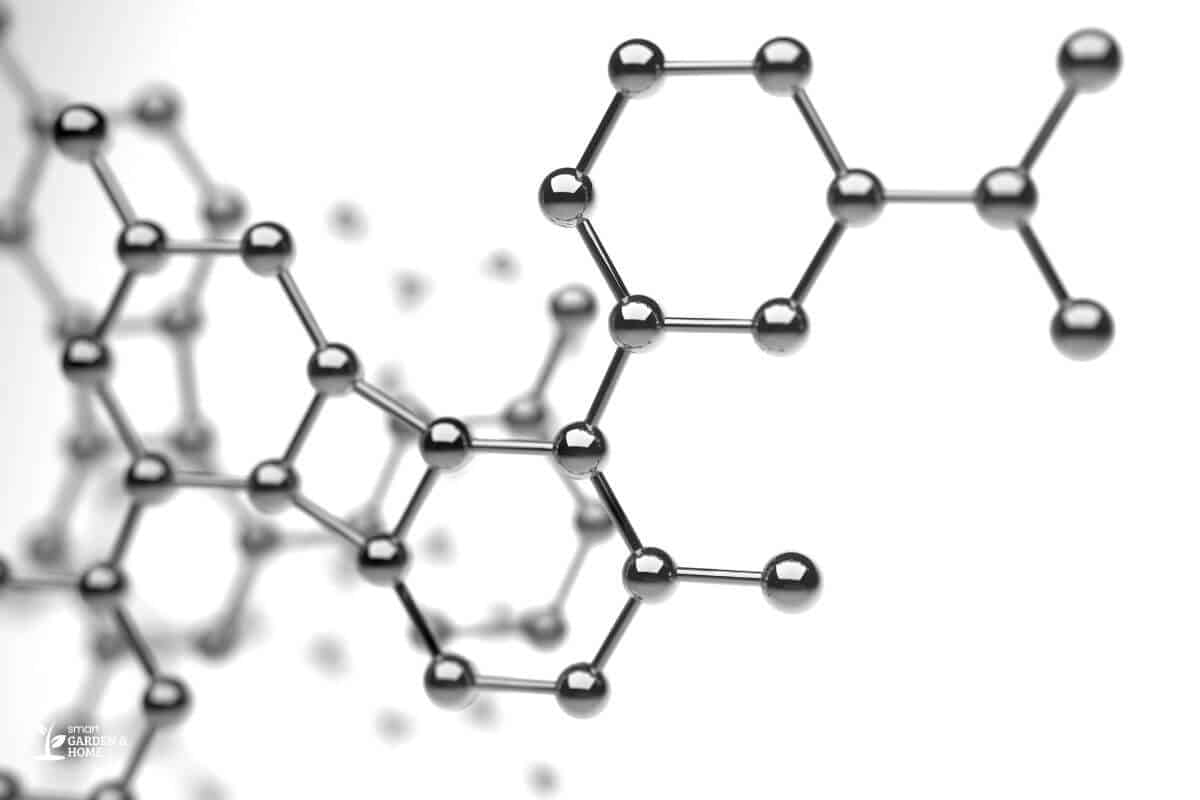
Pyrethrin is a natural insecticide that is extremely effective and safe to use. It is a chemical compound sourced from the chrysanthemum plant. It possesses insect-repelling properties and has a unique scent.
- Take a look at this recommended Pyrethrin solution: Southern Ag Natural Pyrethrin Concentrate
In small amounts, it has insect repellent properties and can be used with other insecticides despite its potential for immediate lethality when used alone.
Pyrethrin’s non-toxicity to mammals allows for safe use in households that have pets.
This insecticide is widely used in the United States due to its quick action and other advantageous features.
It’s also effective to treat indoor infestations, such as those of flies that invade our homes.
3. Neem Oil
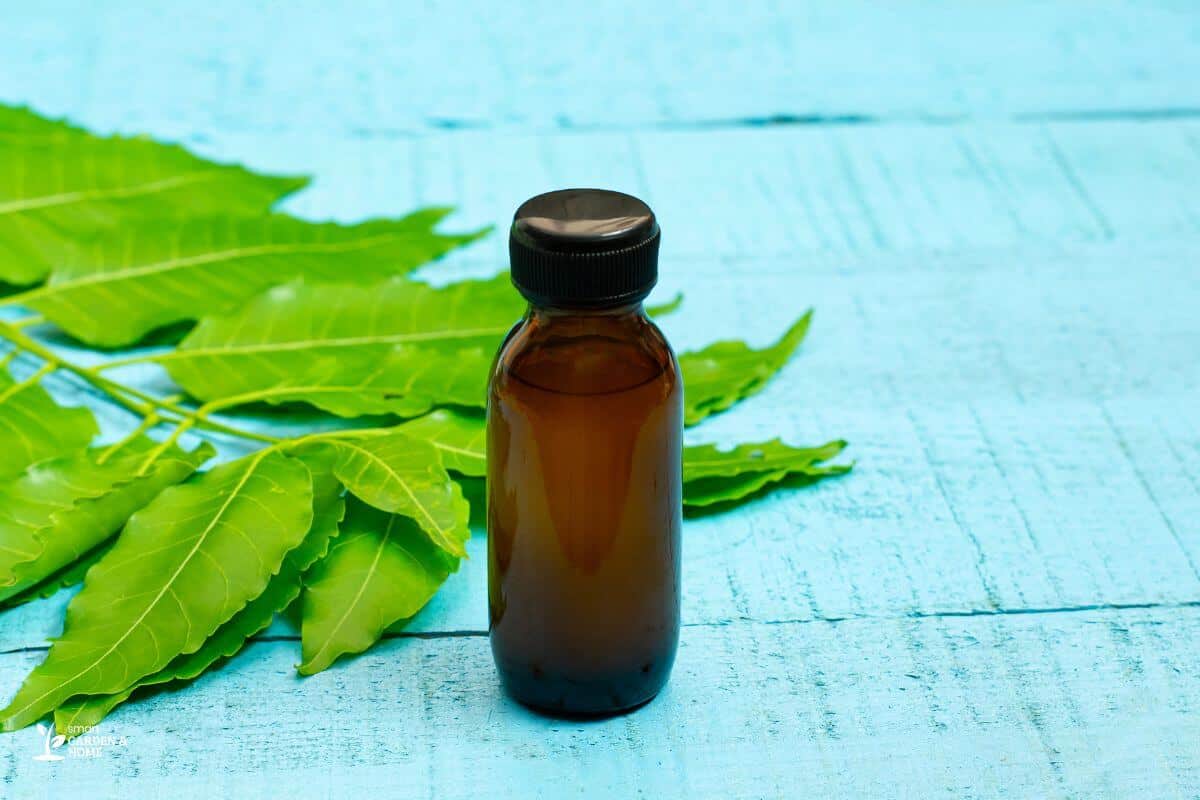
Neem oil is extracted from the fruits and seeds of an Indian plant, and it’s also sometimes called Margosa oil spray.
- Check out these highly-rated Neem Oils: Neem Bliss – Pure Neem Oil for Plants
- Harris Neem Oil Spray for Plants
Neem oil is helpful when used at the very beginning of a pest infestation, as it’s very effective on young insects.
Its active ingredient is called Azadirachtin, which acts by reducing insect growth and appetite.
It can be used to treat squash bugs, Colorado potato beetles, Mexican bean beetles, leaf-eating caterpillars, and soft-bodied insects like aphids.
It’s also effective in preventing powdery mildew, a disease that infects vine crops. Neem oil is considered a natural and non-toxic substance.
4. Diatomaceous Earth
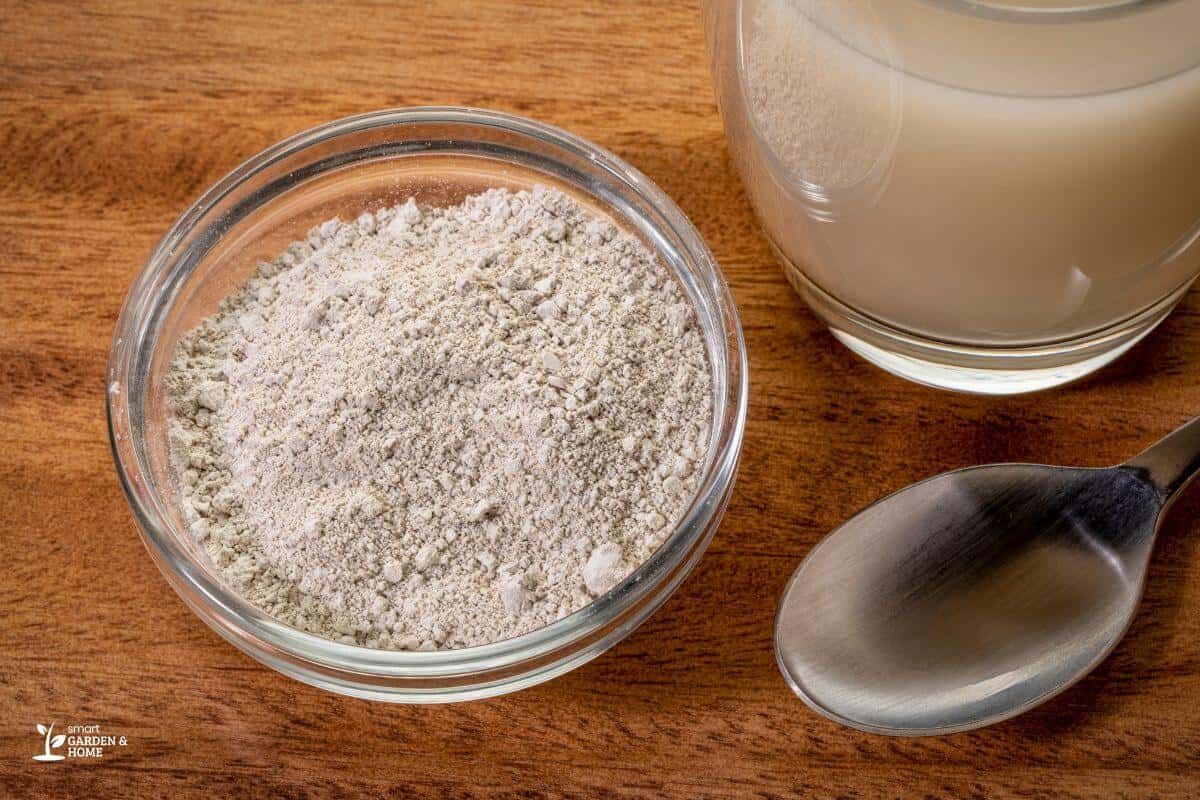
Diatomaceous Earth is even more organic than the other methods as it originates from fossilized algae.
- Check out this highly-recommended Diatomaceous Earth: Earthborn Elements Diatomaceous Earth
These algae called diatoms are made into a powder that consists of tiny, sharp grains. These can cut insects, causing them to die of dehydration.
Food-grade Diatomaceous Earth doesn’t have any effects on larger animals, since it’s too fine to be harmful.
It can kill ticks and flies, and also some indoor insects, such as Japanese beetle grubs, cutworms, flies, ticks, crickets, and slugs.
However, consider that in wet conditions, this method is less effective.
It also carries some risks, as it can affect beneficial insects, such as bees and ladybugs.
Before using this method, you should plan carefully in order to avoid affecting good insects.
5. Bacillus Thuringiensis (BT)
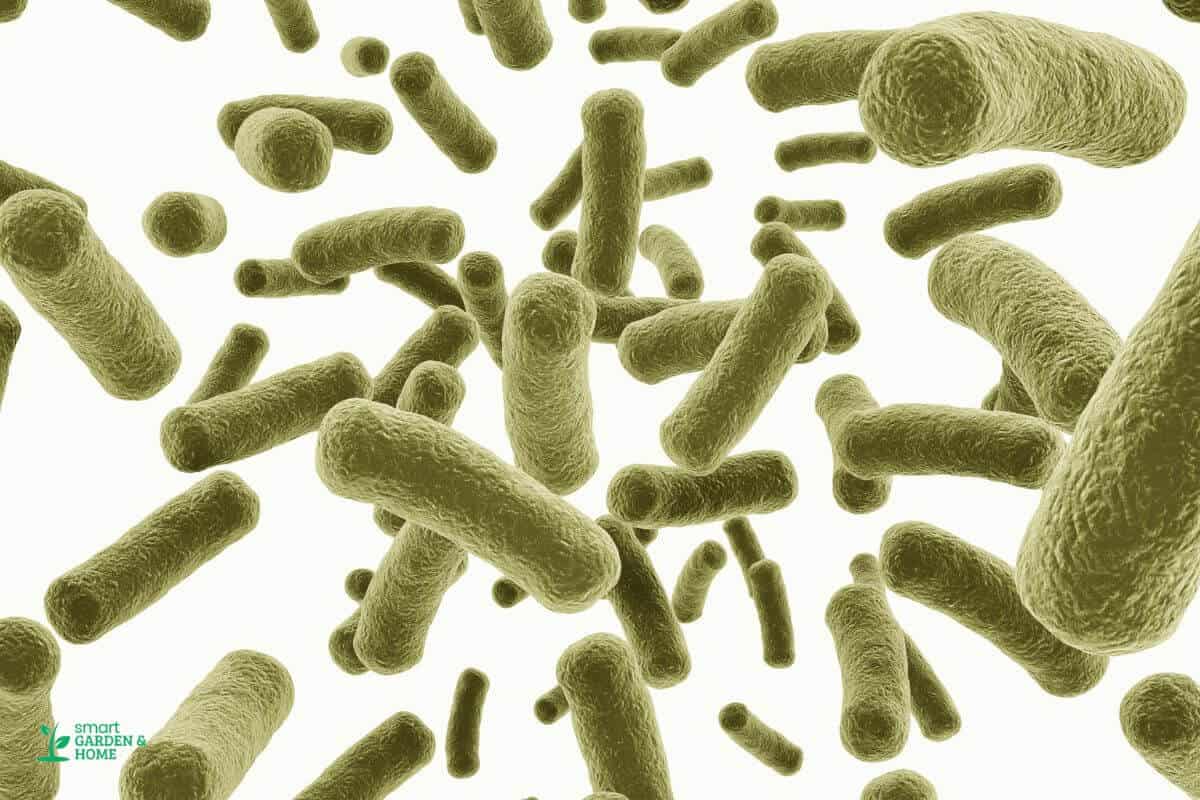
Banish bothersome caterpillars, cutworms, and hornworms with the potent bacterium called BT—which stands for Bacillus thuringiensis.
- Check out this popular BT: Garden Safe Fungicide
The bacterium’s effectiveness is only applicable during the larval stage. Early treatment is recommended upon detecting any indication of potential infestation.
Keep your results fresh with frequent application—every 7-10 days! BT must be used out of direct sunlight as this would reduce its effectiveness.
This bacterium is deadly when ingested by insects, so it should be sprayed directly on the leaves that you believed to be attacked.
It is very safe to use as it’s very selective and doesn’t impact beneficial insects.
Use it with caution if you have cats or dogs around because it can make pets sick if eaten.
6. Minerals
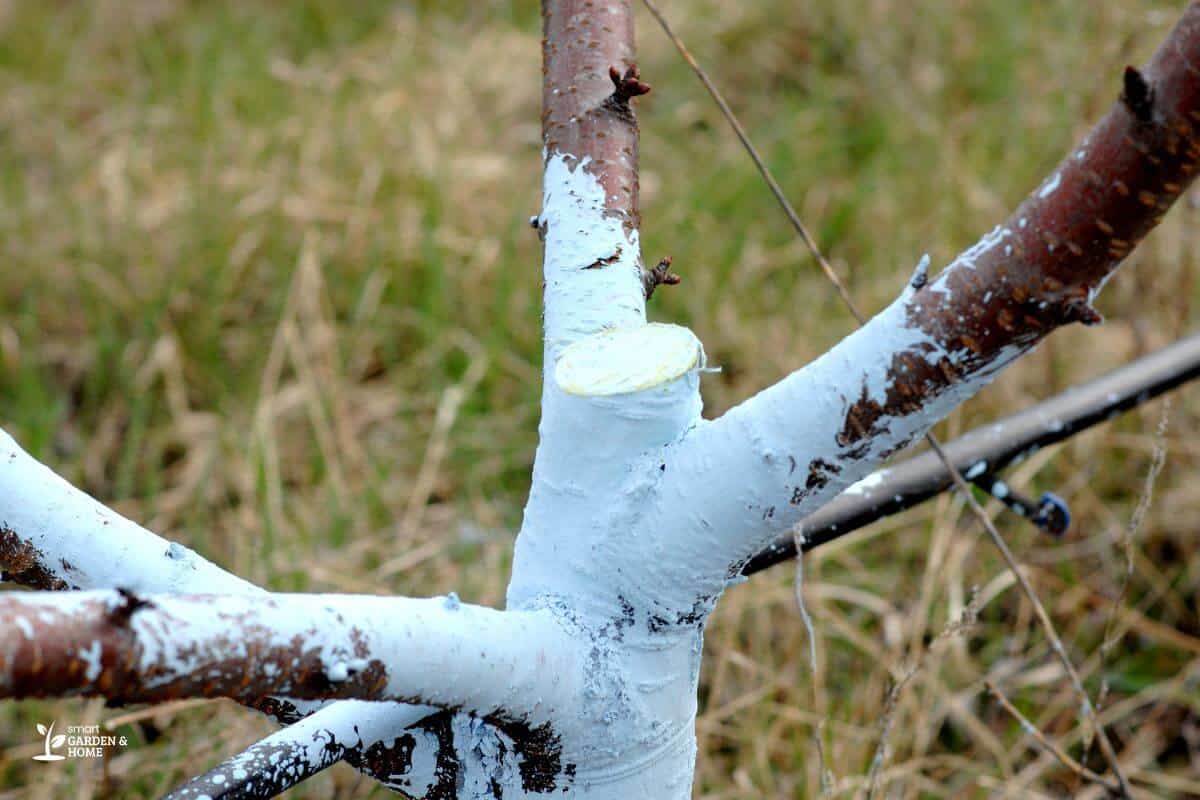
Certain minerals are useful in controlling garden pests. Say goodbye to pesky spider mites, psyllids, and thrips with the powerful and widely-used pest control method: sulfur.
Sulfur has the capability of being used on various plants including beans, potatoes, tomatoes, and peas.
Even though it’s not poisonous to mammals, it can cause irritation of the skin and eyes. It’s also dangerous for plants when used in very hot and dry conditions.
Sulfur is available for purchase in three different forms: wettable dust, paste, and liquid.
The Bordeaux mixture, consisting of copper sulfate and calcium hydroxide, is another traditional and longstanding method.
It is effective against many insects and, contrary to sulfur, it must not be used when the weather is cool and wet.
7. Beneficial Insects
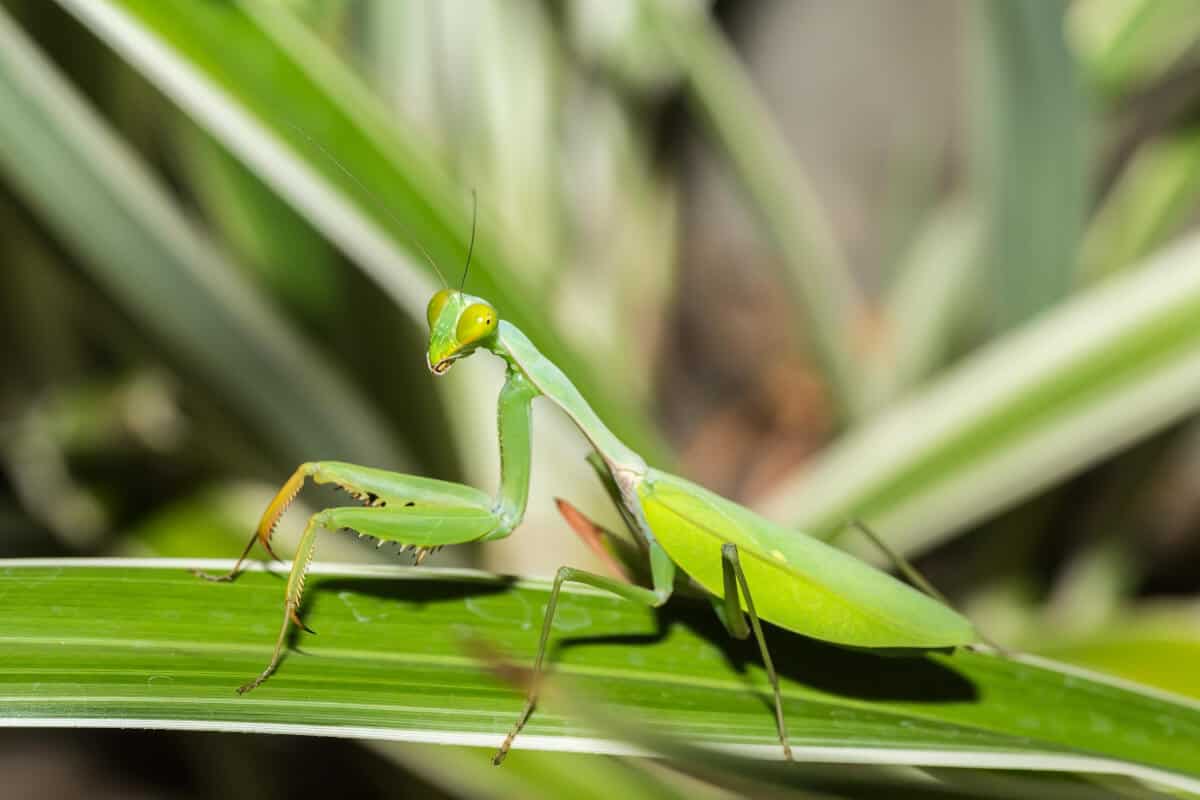
Many insects are excellent to control the populations of pests that invade our gardens. Certain predators focus on a specific species, while others consume a diverse range of insects.
Praying mantis, ladybugs, green lacewings, and ground beetles are among the most commonly recognized beneficial insects. Some insects aren’t predators but kill instead by parasitizing pests, such as some species of wasps.
You can attract beneficial insects by cultivating a varied and diverse garden. A good method is to introduce plants that they particularly like.
Every insect has its favorite plants, but in general some good choices are mint, cornflower, ornamental grasses, fennel, pussy willow, corn, and golden marguerite.
The most common species of beneficial insects can also be bought to be freed in your garden. In the right conditions, they will spread and become established guests.
8. Companion Planting
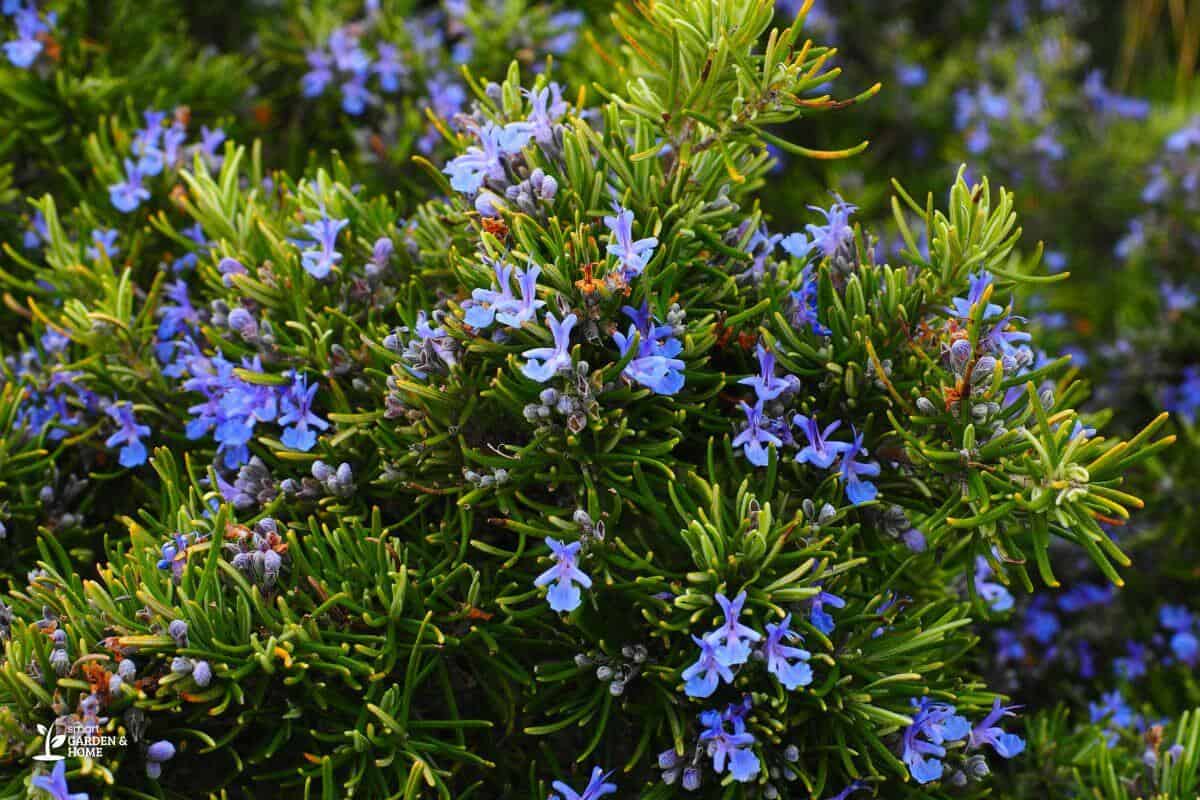
Companion planting works by pairing plants together that help each other in different ways. It’s interesting how some species can protect others from parasites.
For example, carrots are helpful for leeks, while lettuce can protect radishes from earth flies, and radishes can deter cucumber beetles.
In general, aromatic plants are very effective in keeping pests away, as well as mosquitos. Basil, sage, rosemary, and mint are all excellent choices.
Some plants can also defend the garden from bigger pests. Mice are repelled by daffodils, rabbits by onions, and moles by castor beans.
By cultivating companion plants, you will also have the added benefits of increasing productivity and maximizing space.
9. Trap Crops
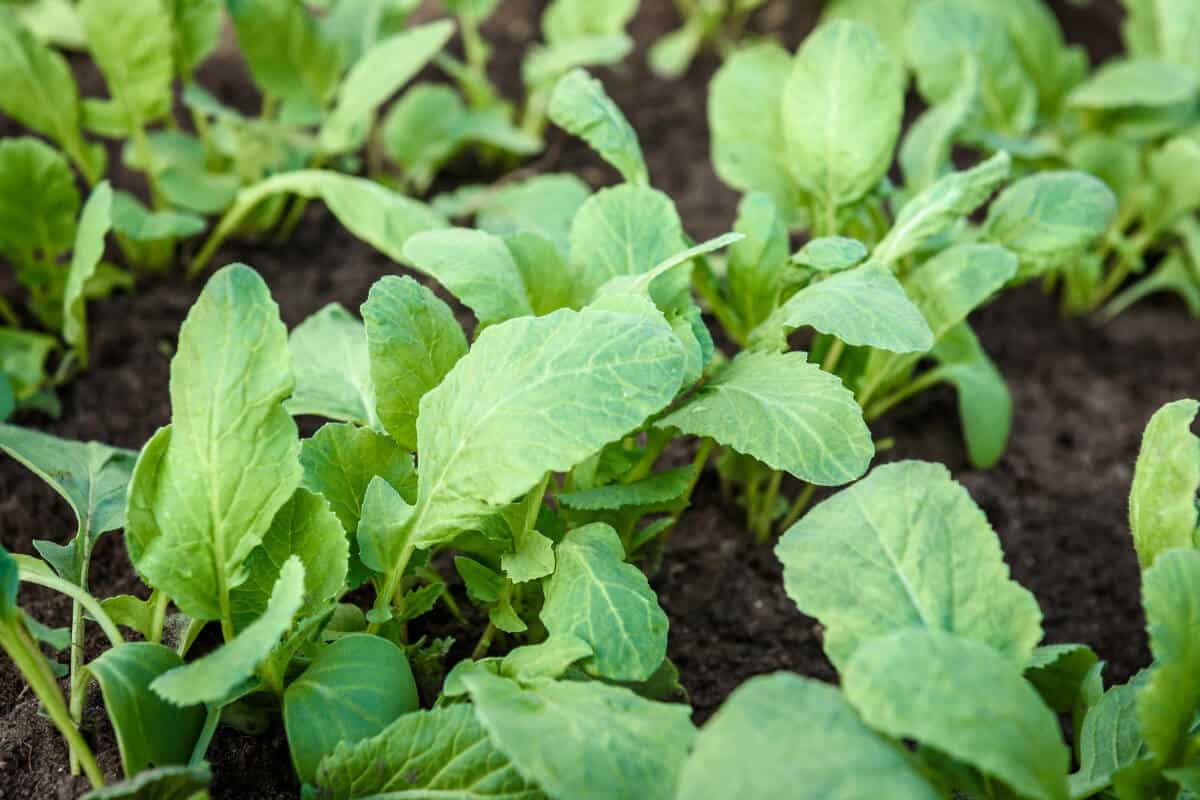
Trap crops are planted specifically to attract pests away from your main crops. It can seem like a contradiction to plant species that will lure pests in, but it can be effective if done correctly.
Trap crops should be planted before the vegetable you want to harvest so that flying insects will land on them instead of on the soil. They can be positioned throughout the garden or arranged in a line among the other vegetation.
The purpose is for the plants to host a large number of pests, which will then draw in their natural predators. These beneficial insects will then take care of them for you.
10. Pets
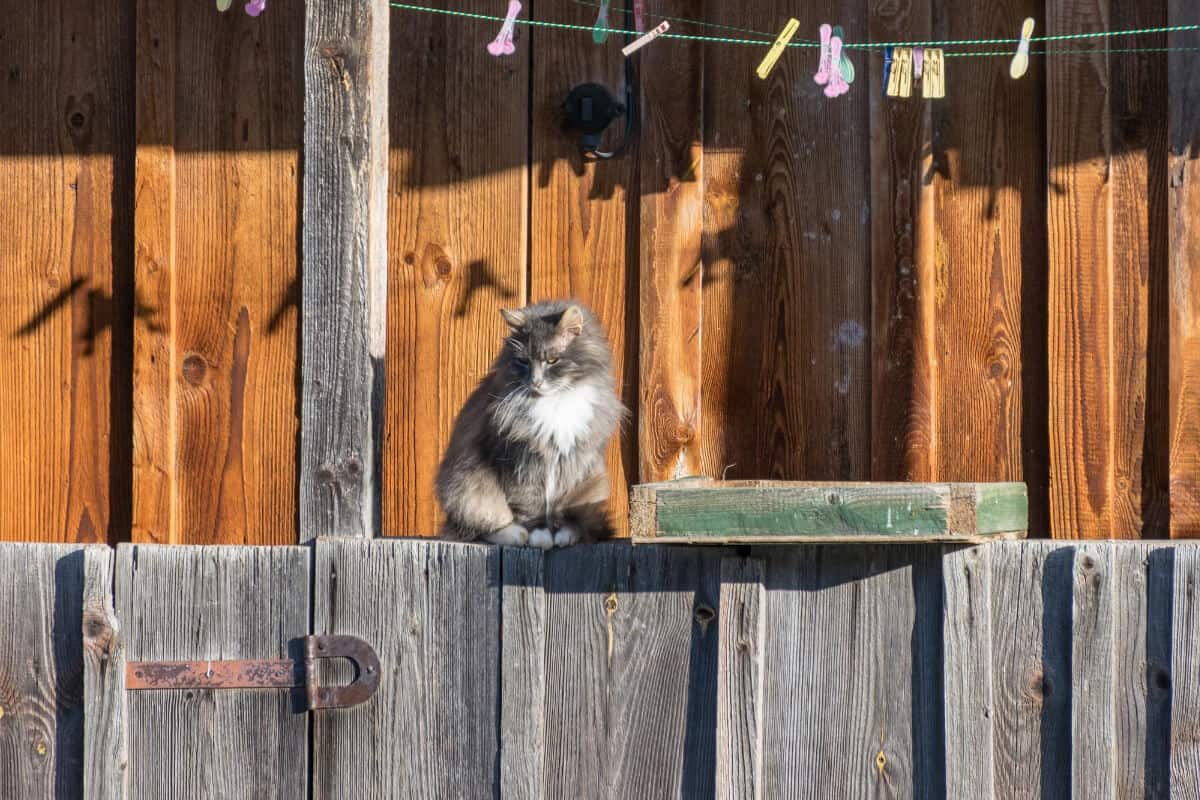
Cats and dogs have historically been utilized by humans to manage pests that pose a threat to crops and storage. They have proven to be efficient in deterring rodents, squirrels, and snakes.
Cats especially have been selected for this purpose since the time of the Ancient Egyptians, so often they don’t require any training. They will hunt and feed by instinct from mice, squirrels, and even insects.
Dogs, on the other hand, might enjoy chasing small animals but they rarely eat them. With their help, you’ll be in the know about all the unwanted species lurking around.
11. Rotenone
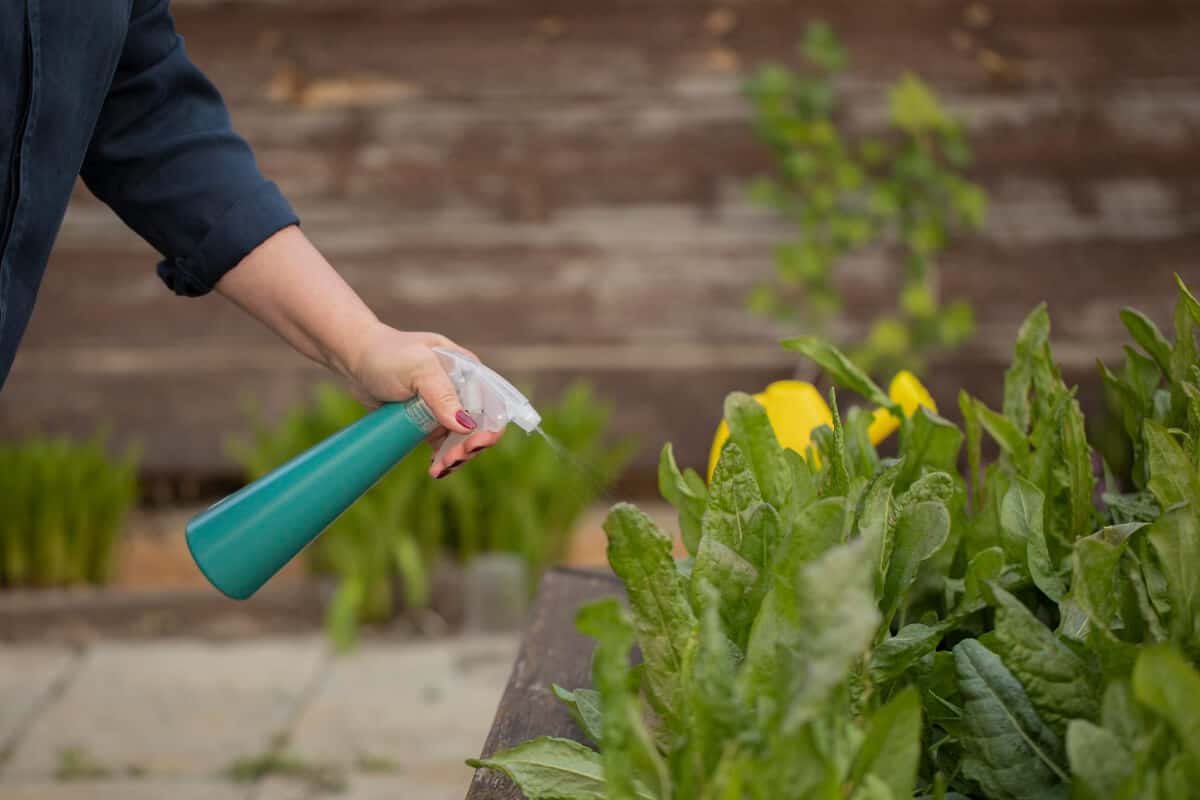
Discover the secret weapon of plants—rotenone! Nature’s secret ingredient can be discovered in every nook and cranny of plants, from their seeds to stems and roots.
This was previously considered as the most effective solution for controlling pests such as caterpillars, beetles, aphids, thrips, and cabbage moths.
It’s a slow-acting compound against insects, but it’s very toxic to fish and other aquatic life. Its most traditional use was to kill fish in rivers and lakes since it has a very low environmental impact.
It’s also mildly poisonous to humans. Because of its toxicity, it’s now banned in organic agriculture. Even if you decide to use it, remember to avoid applying it near any body of water.
12. Insecticidal Soap
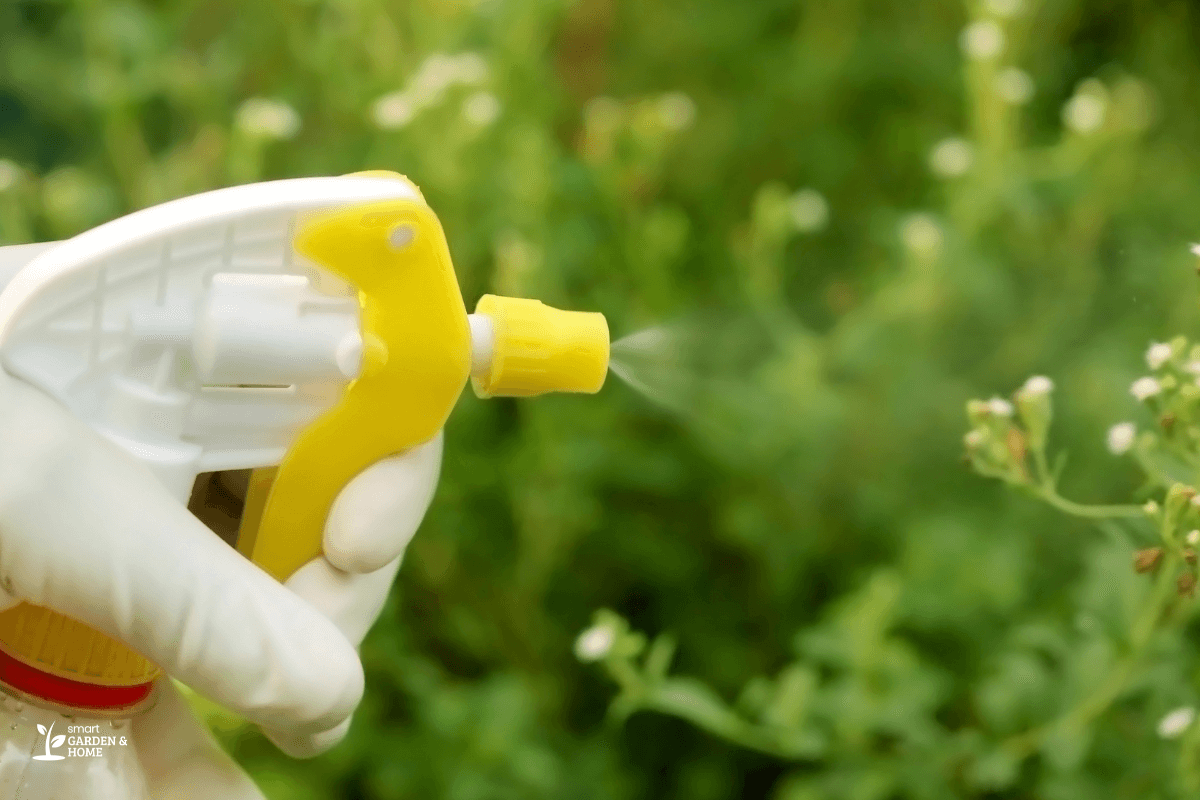
Insecticidal soap spray is an organic pest control method that targets the protective coating of insects, resulting in dehydration and death, and is considered an effective organic option.
- Check out this highly-recommended Insecticidal Soap: BioAdvanced Organics Brand Insecticidal Soap
This revolutionary product, crafted from potassium salts of fatty acids, boasts an incredibly low risk to both humans, animals, and the environment!
Say goodbye to pesky bugs like aphids, mealybugs, spider mites and whiteflies with the magical powers of insecticidal soap! Just make sure to apply it correctly and watch those soft-bodied pests disappear.
For optimal results, apply the spray directly onto the pests using a spray bottle, ensuring full coverage of the affected plant.
Insecticidal soap spray is a viable option for individuals seeking a safe and natural method to manage insect pests in their vegetable garden, as opposed to using chemical insecticides.
Final Thoughts on the Best Organic Pest Control for Vegetable Gardens
Using organic pest control methods can help maintain a healthy and pest-free vegetable garden.
Utilizing organic pest control options like companion planting, insect-repelling herbs, and natural predators can safeguard your crops while avoiding harm to the environment or potential exposure to hazardous chemicals for your family.
Don’t let pesky pests ruin your garden oasis! Stay on top of infestations by regularly checking and taking swift action.
With a little know-how and effort, you can banish pests and cultivate a flourishing garden that yields healthy plants and delicious vegetables all year long!
Take a look at these articles for more on organic gardening:

